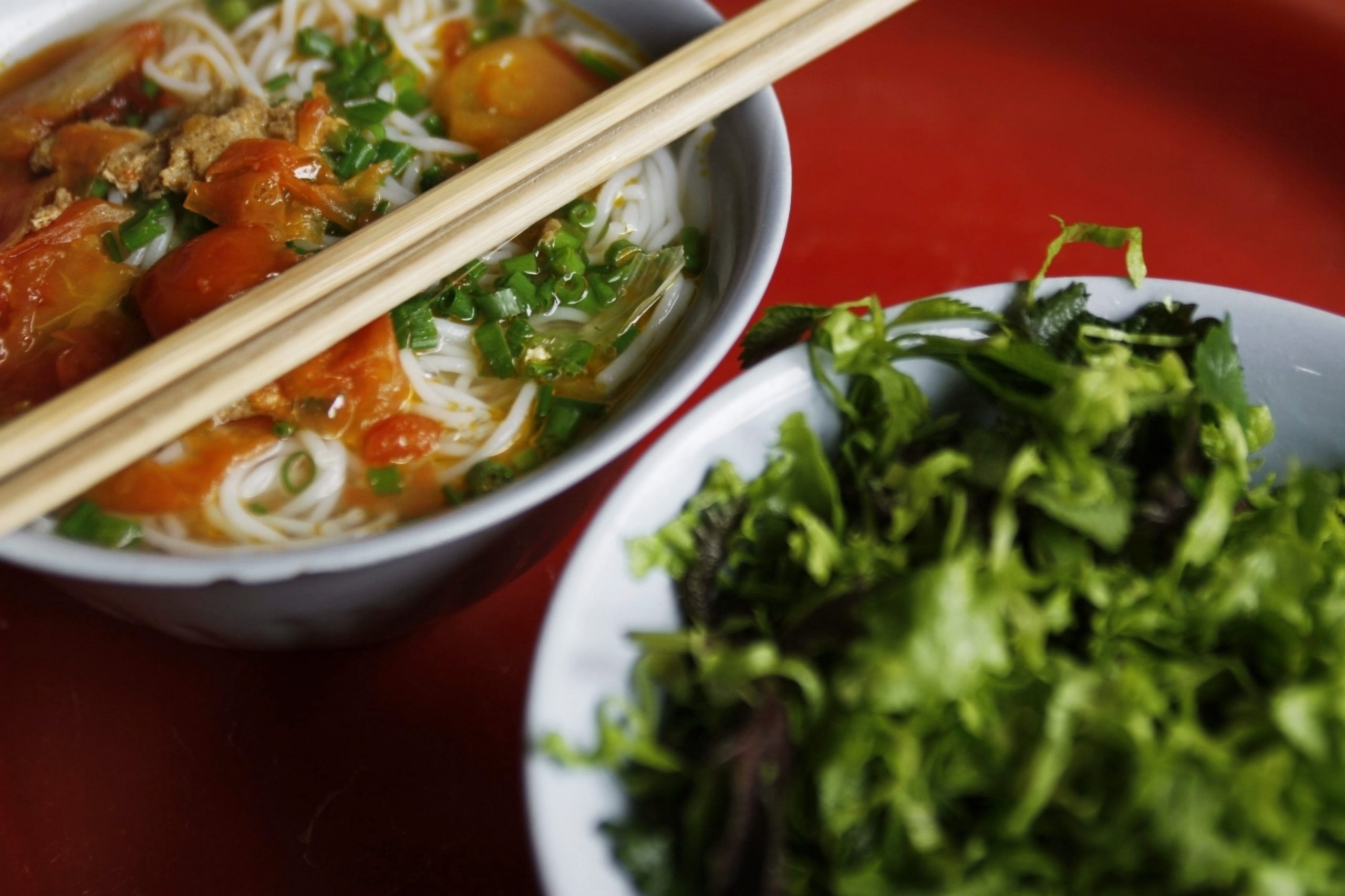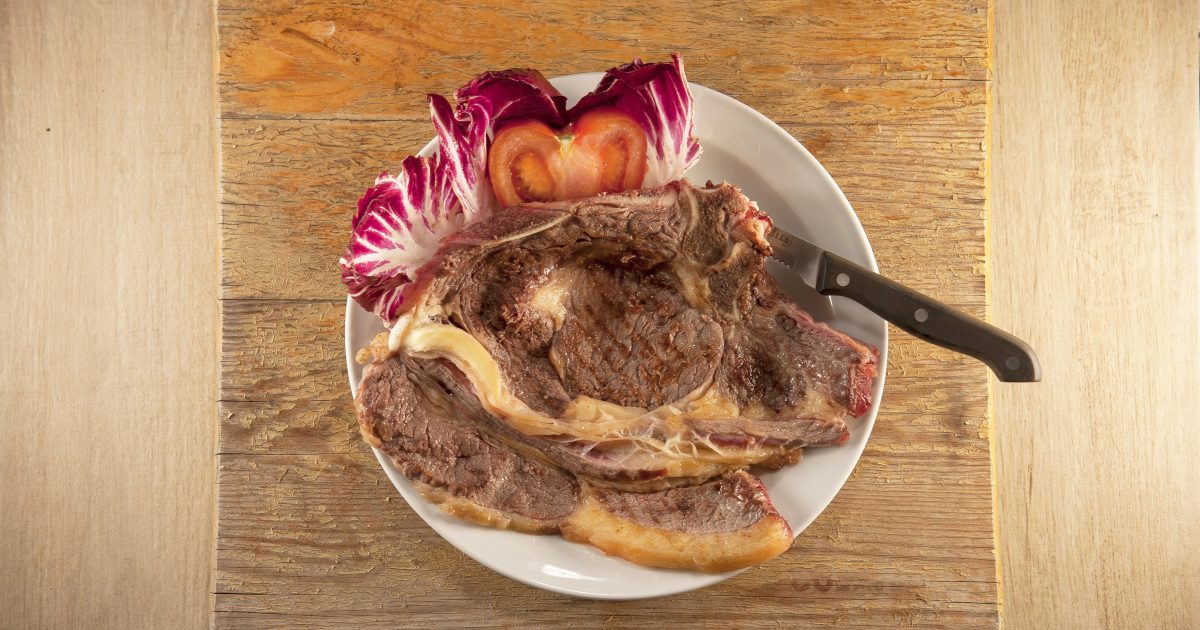Chemotherapy Side Effects and Eating Post-Chemo
- It’s important to celebrate the little things after a chemotherapy treatment like feeling well enough to eat a meal you’ve been craving.
- The most desired post-chemo foods vary from person to person, but we’ve shared five foods that people say were exactly what they needed after their chemotherapy treatments.
- Although we’ve come a long way with managing the side of effects of chemotherapy, they can still have a great impact on people throughout their cancer journeys.
Chemotherapy can unfortunately affect your appetite, but it’s important to try to find things that not only you can stomach, but also that you enjoy. Here’s five meals that cancer warriors have said were their favorite post-chemotherapy treats on Reddit.
1. Chinese Takeout & A Medium Rare Steak.

2. Pho

3. Pizza

Individual slices from Andy’s Pizza in McLean, VA, on March 16, 2019. (Photo by Deb Lindsey for The Washington Post via Getty Images).
4. Mashed Potatoes and Lemonade

hoperuth123: “Right after chemo I live off of mashed potatoes and simply lemonade.”
5. Chick-fil-A Sandwhich

Phantom_1, stage IV rectal cancer warrior: “As much as it hurt my mouth, I always seemed to go for a Spicy Deluxe from Chic Fil A with fries and a lemonade. Just always seemed to hit the spot.”
No matter what it is you’re craving after chemotherapy, it’s important to eat. Now, we’re not recommending a whole pizza every single day, but it’s important to keep a positive attitude and try to eat what you can during a cancer journey.
Understanding Chemotherapy Side Effects
Chemotherapy treatments affect everyone differently, so there’s no real definite side effects you can count on. Below are some of the more common side effects that can affect patients during and after chemo treatments. And while it’s important to note that we’ve come a long with the management of these side effects, they can still have a great impact on people throughout their cancer journeys.
Nausea
"One of the things that patients worry most about is nausea with chemotherapy," Dr. Michael Ulm, gynecologic oncologist at West Cancer Center, said in a previous interview with SurvivorNet. "Everybody remembers what their parents went through or what their aunts and uncles went through probably 15 or 20 years ago."
Although people can still anticipate nausea, Dr. Ulm says your nausea shouldn’t be as bad as you’re imagining with today’s arsenal of effective treatments to combat the side effect with medications you can even take at home.
“I tell my patients, with modern medicine and modern antiemetics that you should never have severe nausea and you should never throw up,” Dr. Ulm said.
Hair Loss or Thinning
Many chemotherapies can cause hair loss or thinning. Hair loss typically begins about three to four weeks after a woman begins chemotherapy and continues throughout treatment. Woman can expect regrowth around four to six weeks after they complete treatment, but some patients may experience some changes to hair color and texture when it begins growing back.
The hair loss associated with chemo is temporary, but this can be an incredibly distressing side effect for some. It's important to speak with your doctor about any personal issues that may be caused by treatment side effects including the loss or thinning of your hair. To help patients cope with hair loss, a doctor or nurse may be able to recommend a local wig-maker or other resources that can help slow down the process.
Heart Problems
Cardiotoxicity, or problems in the heart and vascular (circulation) system, can be a side effect of chemotherapy. Although uncommon, cardiovascular disease is the second leading cause of death among breast cancer survivors behind only secondary malignancies due, in part, to the damage some cancer therapies can cause to the heart.
Certain Chemotherapy Treatments Are Linked to Higher Risk of Heart Problems
“From chemotherapy, high doses of anthracyclines, in particular, have been the prototype of cancer therapies that lead to cardiotoxicity,” Dr. Emanuel Finet, a transplant cardiologist at Cleveland Clinic Cancer Center, previously told SurvivorNet.
Cancer patients at a high risk for heart problems can be older, younger with more aggressive chemotherapy, obese, smokers or dealing with pre-existing cardiovascular disease.
Blood-forming Cell Damage
Chemotherapy drugs can damage all three types of blood-forming cells: red blood cells, platelets and white blood cells. This is turn can lead to various issues like anemia (low red blood cell count), thrombocytopenia (low blood platelet account) or neutropenia (low number of a type of white blood cell called neutrophil).
"One of the things that's changed in the coronavirus days is that now we're giving everybody this drug called Neupogen or Neulasta, and it helps boost your white [blood cell] count," Dr. Ulm said as a way to help your body fight infections.
Fatigue
Fatigue is another possible symptom that has the potential to worsen as chemo cycles add up. If chemotherapy left you with anemia, you can try treating that ease exhaustion. But rest breaks, frequent exercise, and getting plenty of sleep at night can also help fight fatigue.
In an earlier interview, Dr. Zachary Reese, a Medical Oncologist at Intermountain Healthcare, spoke with SurvivorNet about what chemotherapy-related fatigue is like.
“What I typically tell patients is that [chemotherapy] is a bit of a roller coaster ride,” he said. “You're going to feel tired about a week into treatment, and that's when you'll hit bottom. And then you'll start to come back up again just in time to do it all over… You'll feel a little more tired the second time around than you did the first, and it will last a day longer."
Nerve Damage
Nerve damage, or neuropathy, can leave you with symptoms like 'pins-and-needles,' pain, burning, numbness, weakness or trouble detecting heat and cold.
These symptoms might worsen as your chemo treatments progress, but there are ways to combat them. Steroids, numbing patches or cream, antidepressant medicine, anti-seizure medication physical therapy, relaxation techniques, acupuncture or dosage adjustments may help with these symptoms. And while the symptoms of nerve damage might go away once you finish treatment, there can be lasting effects that require ongoing treatments.
Learn more about SurvivorNet's rigorous medical review process.


